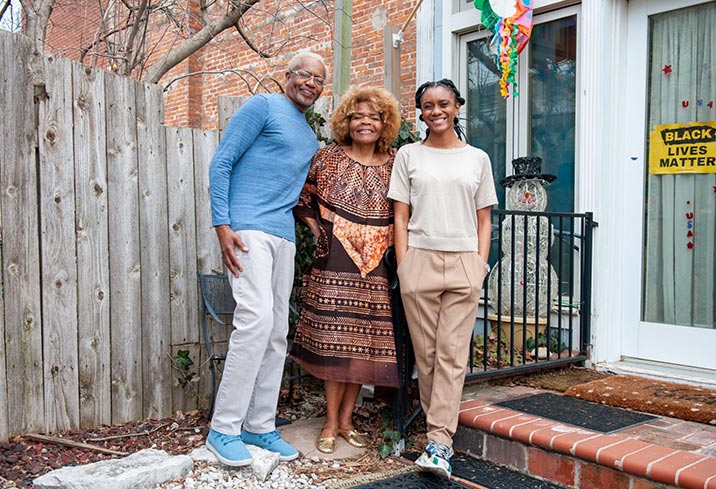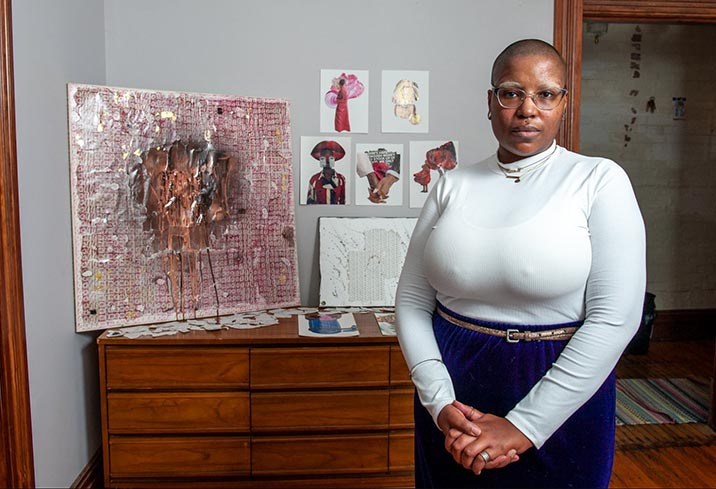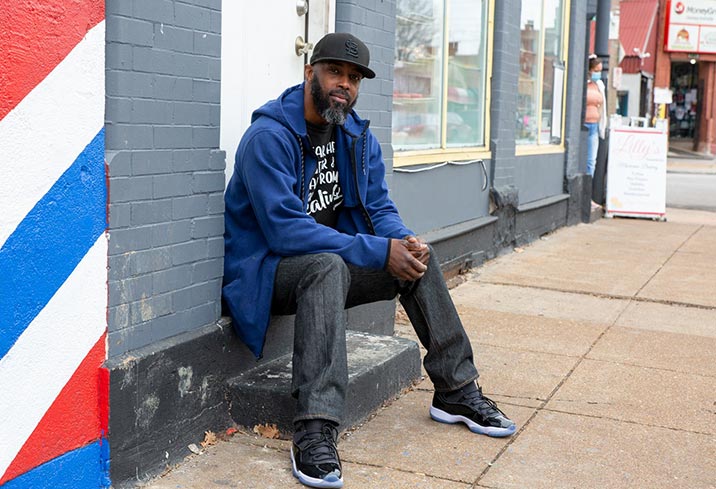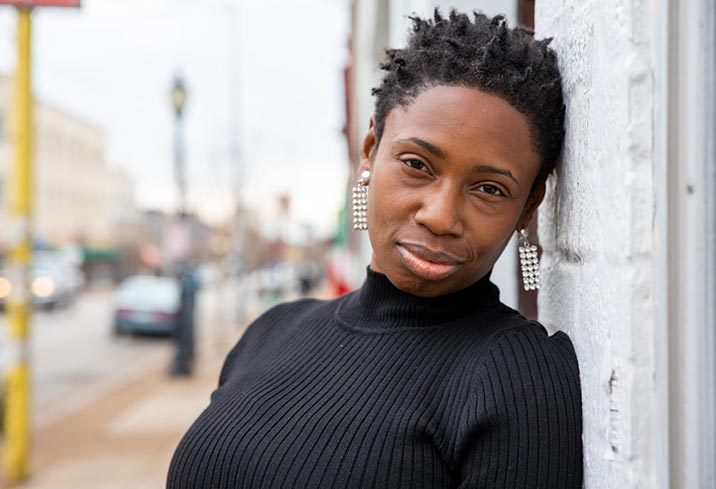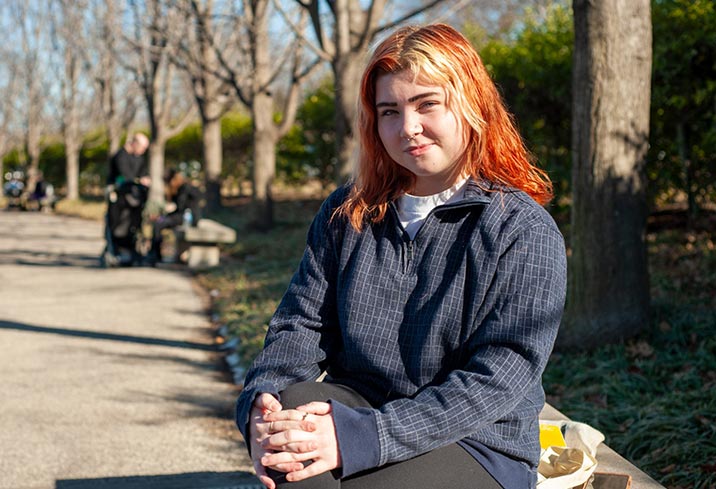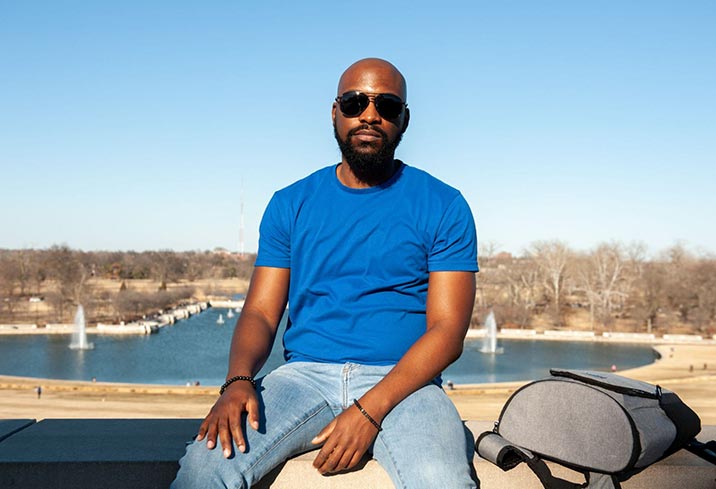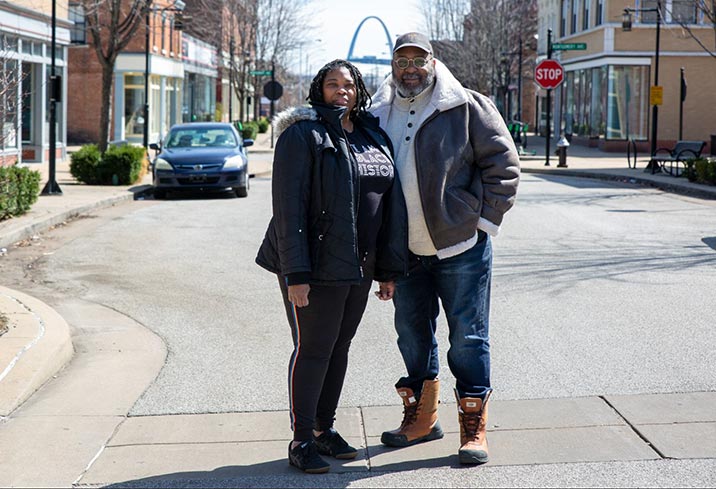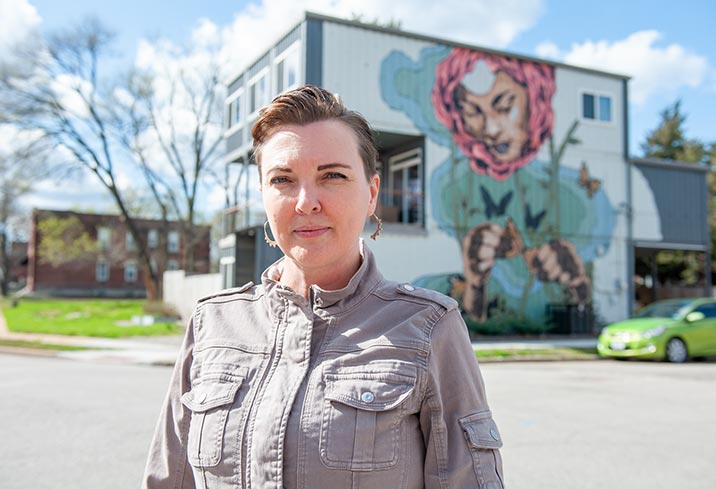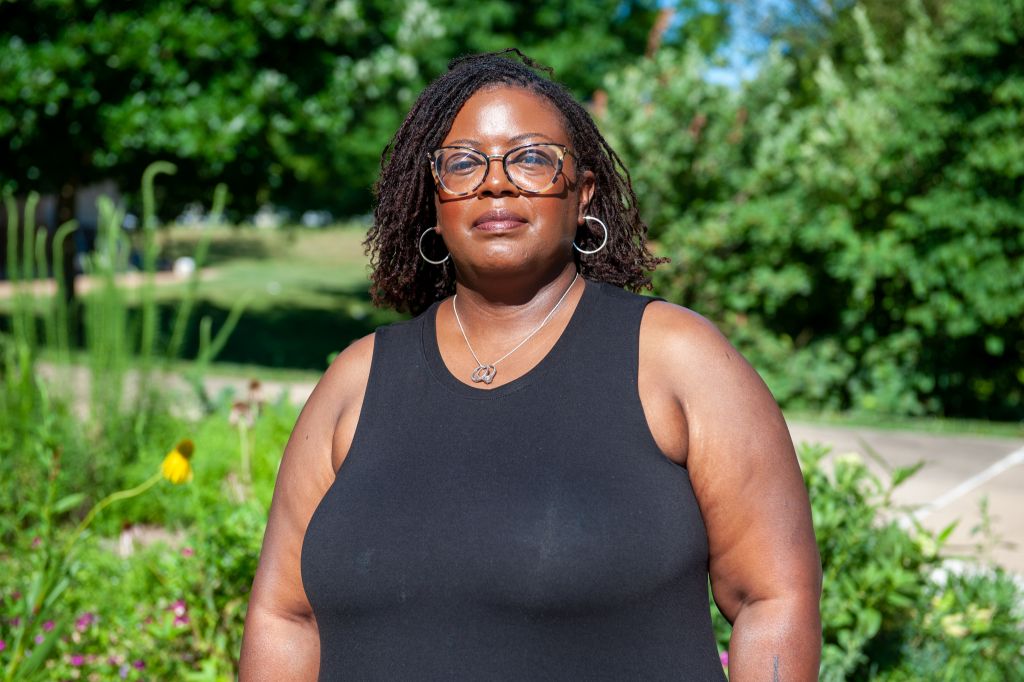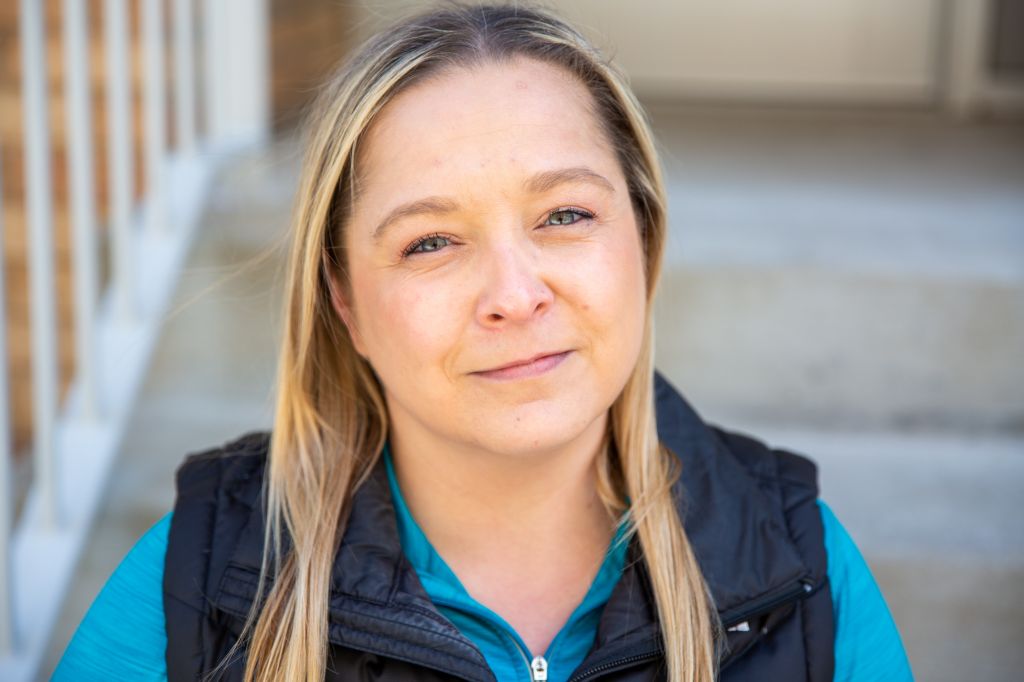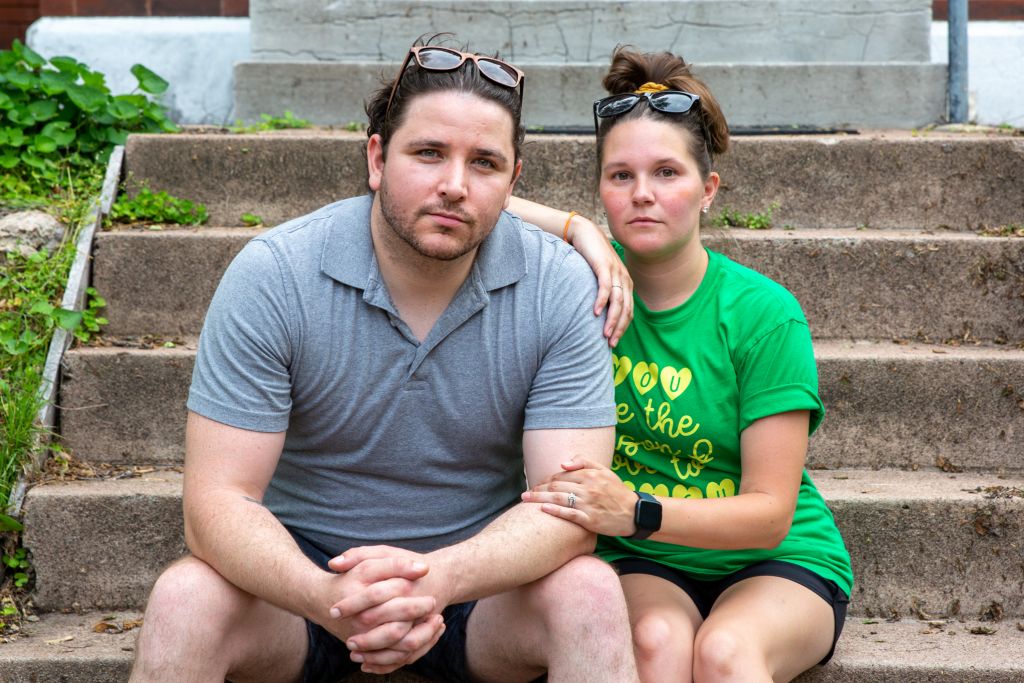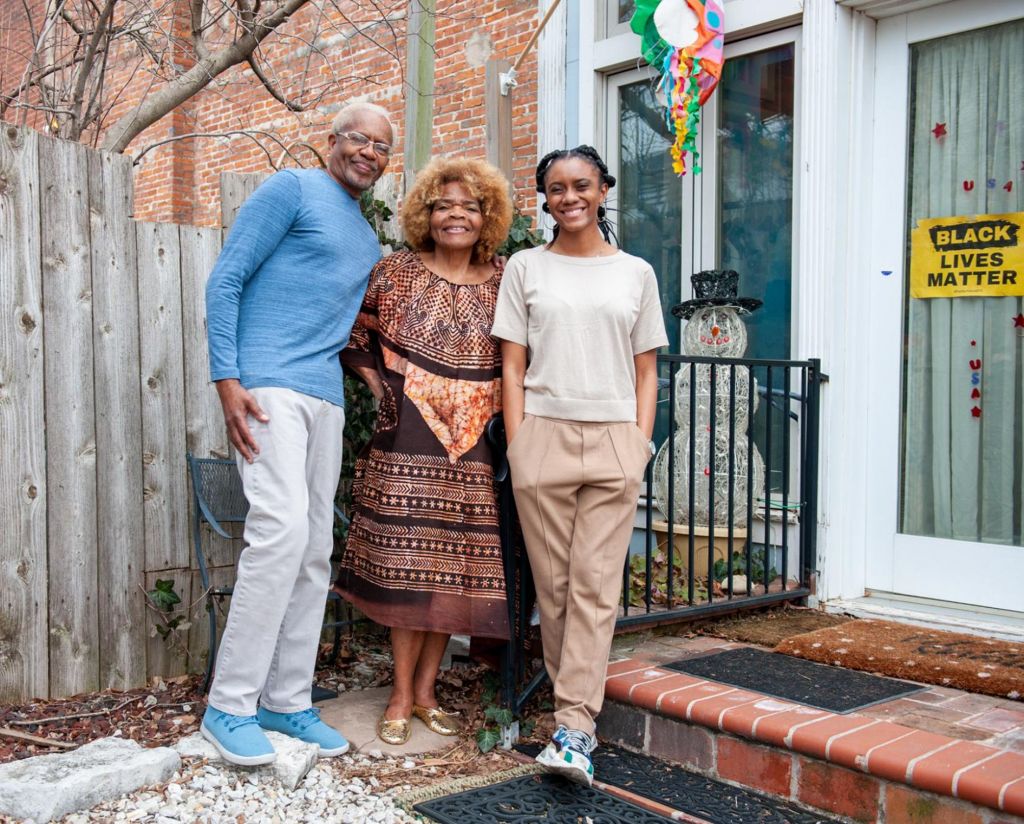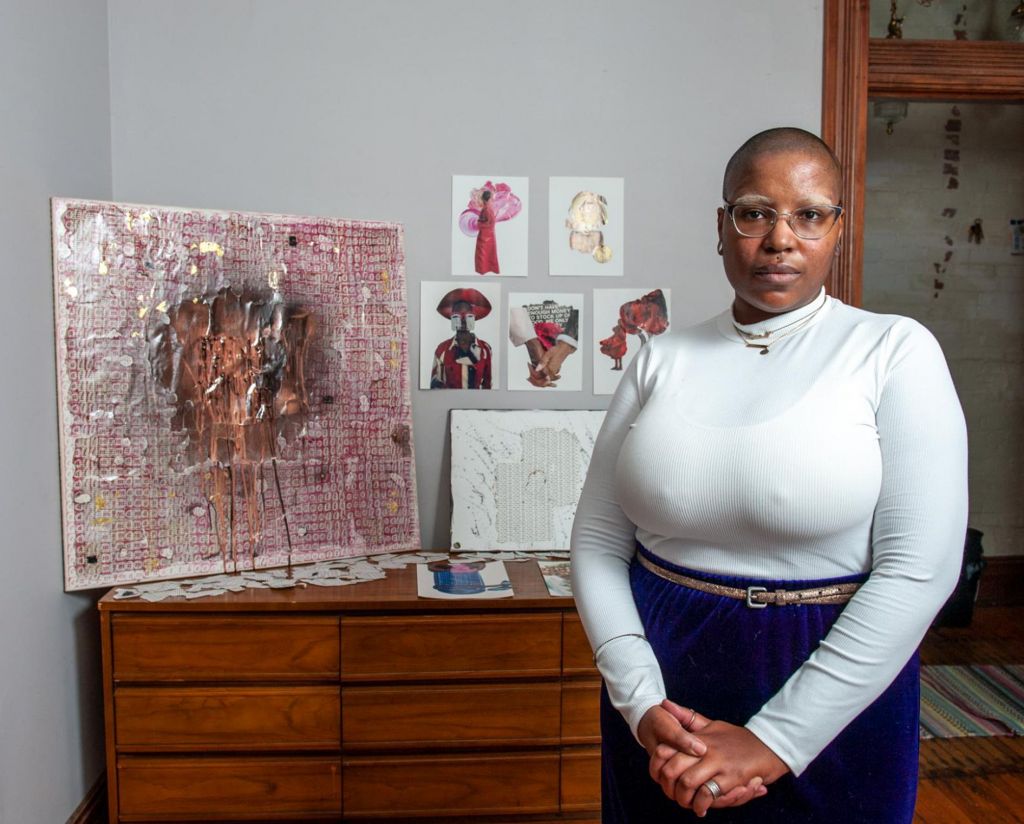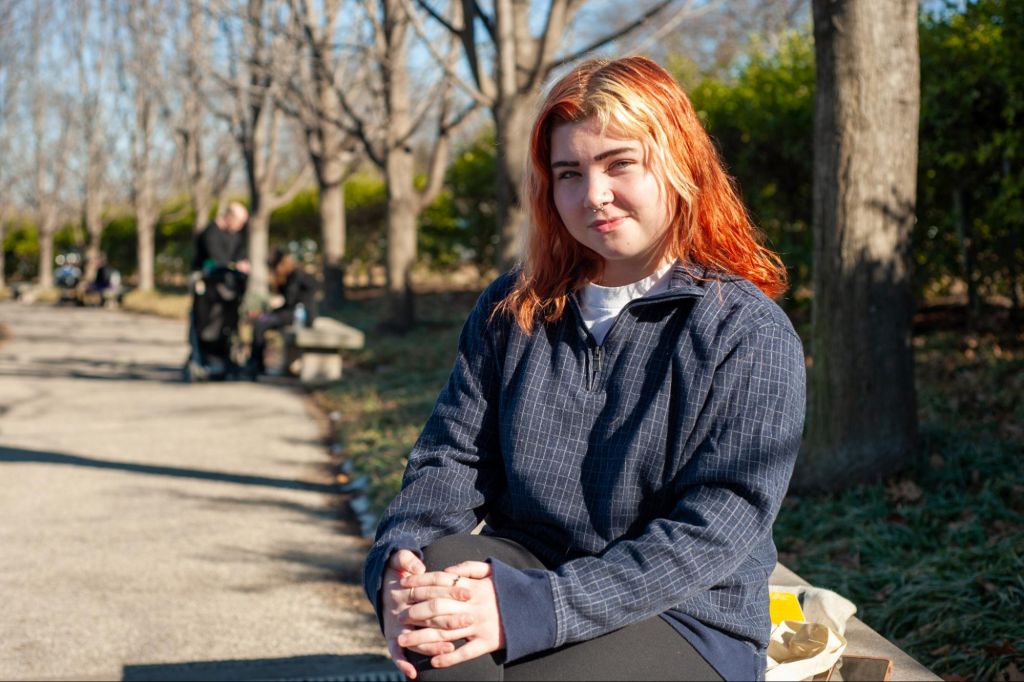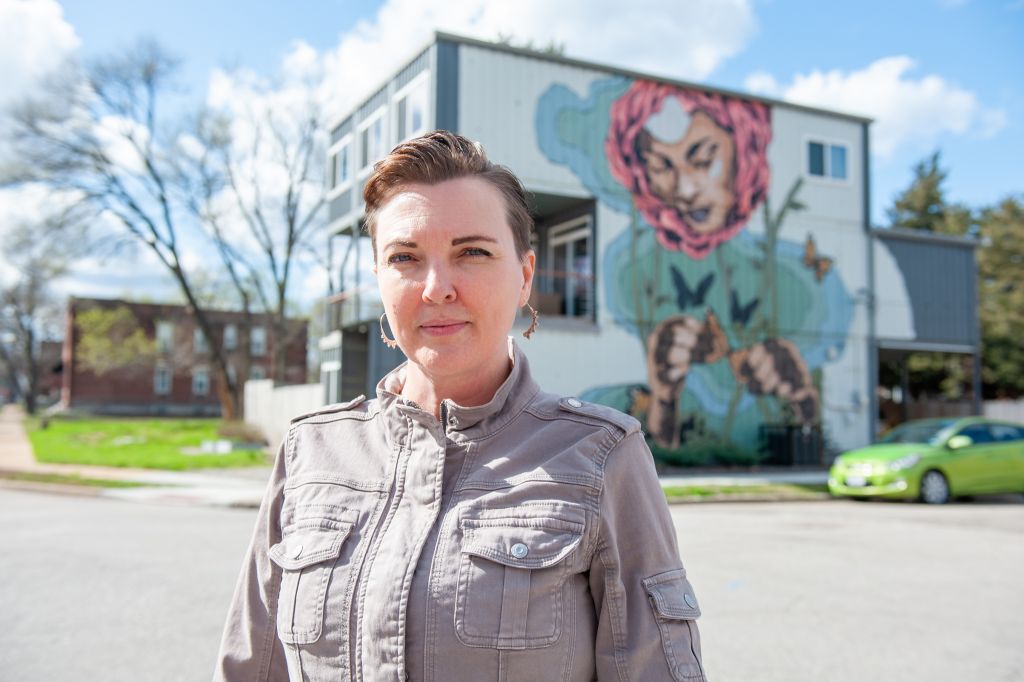Many St. Louisans feel safest when embraced, supported and protected by their loved ones and neighbors. That’s why Forward Through Ferguson partnered with Cami Thomas and her video production company, My Friends and I, to create a three-part video series about what it’s like to live within St. Louis’ current 911 system, what’s at stake and what it takes to move our region toward community-based safety responses. Cami is a St. Louis and Los Angeles based producer, director and photographer.
The #Transforming911 video series includes Part 1: Safety Is Community, Part 2: Time Is Life, and Part 3: First Responder Alternatives.
For more updates about Forward Through Ferguson’s Justice For All work, sign up below.
WHAT’S YOUR 911 STORY?
It’s vital that the voices of everyday St. Louisans are centered in our efforts to transform public safety and the 911 system. That’s why Forward Through Ferguson partnered with Humans of St. Louis storytellers Lindy Drew and Colleen O’Connell Smyth to create a photo storytelling series that amplifies St. Louisans’ experiences with calling and using 911 services.
Click the photos below to explore each 911 story.
Janice and Jerome Jernigans and Cami Thomas
“Things aren’t always easy on the Northside of St. Louis City. There are definitely aspects of the community and neighborhood that needed work and addressing. But something my grandparents taught me that I still carry is what it means to love a place and stay in a place. It’s easy to point out the things you don’t like about a neighborhood or make comments about what needs to change. It’s another thing to dedicate yourself to staying in a place and work towards building it better and safer and envisioning it to where you want it. I admire that my grandparents did that. This is a beautiful house in a beautiful neighborhood and they didn’t give up and abandon it.”
Bee, conceptual mixed-media artist
“I grew up poor. I was homeless more often than not. A lot of my friends and other community members experienced the same. I have a lot of experiences calling 911 and none of them are good. I reached out to a lot of my friends to ask if they’d participate in this series and they were ashamed to have called 911 because, instead of helping people, where we’re from it usually causes more harm. For me, 911 is not a solution. When they’ve sent the cops first, I haven’t gotten what I needed. I’ve been in a lot of situations where I’ve needed a paramedic and cops showed up 20 minutes before EMTs. With all the money we have in St. Louis, it’s surreal that there’s no reason people don’t have the services they need when they contact 911. For my piece, Call My Mama, Not the Cops, my dream is that a kid sees it in a museum, looks at their mom, and asks, ‘What’s a cop?’ I do think the police need to be abolished. And if my art can outlive that, then that’s when I’d feel like my job would be done.”
Ronnie Amiyn, Power Builder Organizer at Freedom Community Center
"We don’t have enough responders and those we do have are underpaid and underappreciated. What we need is a whole network of first responders equipped to deal with crises better than the police. The police shouldn’t always be the option. They shouldn’t have to show up with a dispute between spouses or an unruly child in school. They shouldn’t show up when there is someone having a mental break and needs help. They shouldn’t show up when there is someone who is homeless. There need to be more options. Humanity and common sense need to be a part of the equation when we talk about responding in a really real way."
Tracy Stanton, Power Builder Organizer at Freedom Community Center
"What happens when you call the police when someone is in an active state of addiction? They get put into the carceral system, not treatment centers. This doesn’t address what’s wrong. I only needed to go through treatment one time. Once I got help, I transitioned into the person I am now. When we see people on the street, it should be, ‘Do you have support? Do you have a family? What do you need?’ Instead, it’s, ‘Let’s take you away and put you away so we don’t have to deal with you.’"
Isabella Rainey, Soulard resident
"I had to call 911 when I was a senior in high school. It’s one of those things where you’ve been taught your entire life to call 911 during an emergency, but the second you do, it’s like, ‘Excuse me?’"
Erik Mills, St. Charles resident
"I’d love to see if someone calls 911 and it is not immediately directed to law enforcement. I believe there’s a switchboard so when people answer your call and say, ‘What’s your emergency?’ you can go down a number of different paths. Someone on the other end of the phone can be a counselor or just a voice to talk to to de-escalate things before they become issues."
Riley Owens, North St. Louis City resident
"The one time I called 911 was for a bank robbery. I was in my car at an ATM on Florissant and St. Louis Avenue waiting for my turn. The guy in front of me was putting stacks of bills into the machine making a deposit. He was taking a long time and all of a sudden another guy walked up, pulled out a gun, and they began to struggle. Money was flying everywhere and I heard a shot.
I backed up to call 911, but nobody answered."
Gina Sheridan, Old North St. Louis resident and St. Louis County librarian
"I grew up thinking you can call 911 for help. And I can see it doesn’t work, so why would I call? And the times the police do respond, I don’t know, they might hurt someone. It’s true."
Reverend Erika L. Essiem, Racial Healing + Justice Fund Community Governance Board member
"We need more people trained in mental health first aid. We have all these neighborhood watches popping up. What if we had neighbors who are trained to respond to your calls for help? There’s an organization in St. Louis called Black Men Build. I’ve attended their meetings and they’re trying to train some of their members in mental health first aid so Black communities don’t have to call the police."
Jessica Bueler, Executive Director of Welcome Neighbor STL
"When I posted about the incident I experienced, so many people reached out to me and told me similar things. Some even sent me private messages like, ‘I saw a car accident, called 911, and nothing happened.’ The onus is put on citizens to find help on their own. You have a few seconds to decide how you’re going to handle something, and if the professionals are not responding, then we have to step up and do the best we can with what we have without tools or training."
Adam Hopkins, Gravois Park resident
"There should be different groups of people who need to respond to different things — medical, peacekeepers, and mental health emergencies. With our current system, applicants should have to meet certain criteria before they can be a cop, like mental health evals and whether or not they easily lose their temper. When anyone gets hired for a job, you need references. Questions need to be asked to those people like, 'Would you think of them as an angry person? Or power-hungry?'


